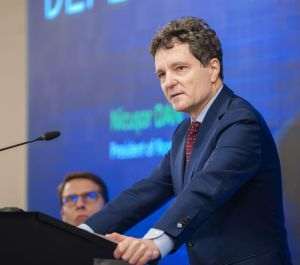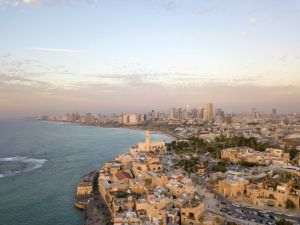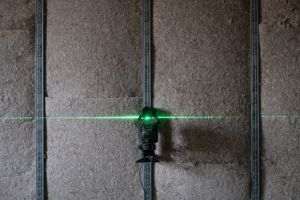The first hike of the policy rate in the last ten years, by 0.25 percentage points, is too small and has come too late to have a significant effect on inflationary expectations.
The signal of the beginning of the new cycle for restricting the monetary policy also came through an analysis posted on his own website by Lucian Croitoru, advisor on monetary policy issues to the governor of the NBR, on the last day of last year (author's note: "One reason why inflation was late in occurring", December 31st, 2017).
"After managing the fiscal stimulus for three years, companies were unable to understand correctly the meaning of an increase in the price of their own products. They have thought that the prices of their own products have increased because of increased demand for them, and not because aggregated inflation has increased", the article writes, and thus "inflation has remained irrationally low, whereas the GDP had high rates of increase".
Lucian Croitoru also writes that "among the important factors of the core inflation - the inflation of imported consumer goods, the surplus demand, the persistence of inflation and the inflationary expectations - only the latter three have had a positive contribution to forming the inflation up until recently". The latter, rising inflationary expectations, were added to the three factors starting with the third quarter of 2017.
Under these circumstances, the advisor to governor Mugur Isărescu estimates that annual inflation rate will range between 4% and 5% in Q1 2018 and he thought that "sufficient conditions have been met that make necessary the hike of the policy rate".
"The sooner the interest rate is raised, the better", Lucian Croitoru further writes. And the National Bank of Romania has raised the reference rate. The decision has generated virulent reactions in the media, most of them referring to the impulse given to the spurring of the interest rates on loans granted to the population.
Has the NBR make a mistake? Yes, but not for not raising the interest rate, but because it has reduced it to the all-time low of 1.75% and has kept it there for a long time, (author's note: almost three years), even when the signals concerning the overheating of the economy reached the warning level, at least one year ago.
That is how a reliance on cheap money has been created among the households and the companies, but especially at the level of the public budget. Also, the effect of cheap money is also expressed through the weakening of the country's economic structure, which will have major difficulties in adapting, once the borrowing costs on an international level start returning to normal.
The analysis published by Lucian Croitoru was reproduced by Republica.ro, and that is where the reaction of a producer was seen. He wrote that product prices weren't raised in 2015 and 2016, despite the significant increase in salary costs, because "we settled for making money by increasing the volume", as "we have compensated the expenses with salaries through the acquisition of cheaper raw materials".
Haven't cheaper raw materials also led to lower quality of the end products? Unfortunately, that also represents another form of the hidden inflation, together with the phenomenon known as shrinkflation, which implies a shrinking in size or quantity, while maintaining or slightly rising the price.
The producer who wrote the comment on the analysis posted by Lucian Croitoru was faced in 2017 with an accelerated increase of the price of commodities, in the context of a decrease in productivity, and says that "we have announced price hikes 2018 because it took until Q3 2017 to realize that things were serious".
It is hard to believe that the experience of the producer who reads analyses by the specialists from the NBR is an isolated one.
This is the context in which the hike of the policy rate came around. Normally, the increase of the official policy rate would have been followed by a strengthening of the national currency, and the reaction of the market confirmed the expectations, but only for a very short period of time.
Why? Because the announcement on the website of the NBR was followed by the statements of governor Mugur Isărescu in his press conference. He said that what is being sought is "a higher stability of the interest rates with a higher flexibility of the exchange rate".
In doing so, Mugur Isărescu confirmed that the National Bank of Romania will continue to react to "moves" of the market and will try to "stabilize" the interest rate, but that is impossible to do when you're trying to do "backseat driving".
After saying that the raise of the policy rate would not automatically lead to the hike of the interest rate on loans, the NBR governor was asked what relevance would the reference rate still have?
Mugur Isărescu responded that "the policy rate also has other purposes", not just influencing the interest rate on loans, including "the role of a signal concerning the strategy of the NBR, drawing foreign capital or financing the budget and current account deficits and supporting the strengthening of the exchange rate". But why would the foreign capital come and fund our deficits, when the government policies are unpredictable and irresponsible?
Moreover, "the hike of the interest rate shows that the National Bank is reacting", Mugur Isărescu further said "because we work with predictions", and the hike of the interest rate shows that "we haven't just been sitting at home and neither were we asleep at the National Bank of Romania".
Nobody has accused the NBR of "sleeping on the job", but the lack of reaction to the budget slip-ups and the overheating of the economy seem to indicate it was looking at something else and it didn't want to ruin the economic "miracle" of the last few years, a miracle owed almost exclusively to the monetary policy of cheap money in Romania and the illusion of the economic turnaround through money printing.
The NBR can not accuse the governments of the last few years of promoting a pro-cyclical fiscal policy, as the monetary policy has been procyclical after the 2009 recession, an economic "collapse" which has been the result of an uncontrolled increase in lending, in other words also the result of a procyclical monetary policy.
It is also the increase of lending, particularly that denominated in lei, that has distorted the economy after 2013 as well, when the "First Home" program has also stimulated the resumption of "extravagance" on the real estate market and the rise of the construction sector, amid "encouragements" coming from the NBR officials concerning the "accessing" of cheap loans.
Under these circumstances, all the National Bank of Romania has left is to hope that the economic uncertainties will diminish in the near future, and inflation will return to the target bracket in the second half of the current year, as Mugur Isărescu said in the press conference.
Unfortunately, the preference of NBR officials for "gradual corrections" cannot have a significant influence on the market expectations, which knows that the tightening of the monetary policy, by increasing the intervention rate, cannot be "accelerated".
As for the recommendations of the governor, concerning an economic growth based on investments and less on consumption, these will not garner any attraction at the government or corporate level.
For private investments it isn't just low borrowing costs that are necessary, but in particular, stable and permissive regulatory and fiscal environments. On the so-called public "investments" there is nothing more to say, as for years they have been nothing more than an irresponsible waste of the state's financial resources.
Had it really wanted to tether down the inflationary expectations, the NBR should have acted at least by mid-2017, and in doing so would have proven that its independence was real, and not just an empty statement.
In his analysis, Lucian Croitoru also said that the hike of the policy rate would also lead "to the earlier creation of greater room for cutting the interest rate if a recession appears". So does that mean that the NBR is getting ready to counter a recession generated by the discrepancy between expectations and reality, due to cheap money, by making money cheap? What kind of "sustainable" economy will Romania have if it is periodically subjected to such shocks?
"Regardless of how early the interest rate will be risen, it will be considered as the cause behind the slowdown in the rate of growth of the GDP in 2018", the advisor of the NBR governor writes at the end of his analysis.
That is probably one of the reasons why the decision of the National Bank of Romania is also backed by Napoleon Pop, former member of the Board of Directors of the NBR, currently strategy consultant in the Chancery of the NBR, in an article on the website OpiniiBNR.ro (author's note "Reacţie la ultima decizie de politică monetară a BNR - Reaction to the latest monetary policy decision of the NBR", January 10th, 2018).
Mr. Pop assures us that "the NBR does not treat its monetary policy instruments brusquely", as their efficiency depends on "small steps, well thought out, gradual, determined upon the confluence of a profound theoretical basis, of some results originating from consistent correlation models and last but not least, by the intuition of the end stage decision makers, the members of the Board of Directors, who need to combine it in the meting pot of a vast education, expertise and practical experience".
Would there be anything to say? Perhaps another continuation of the speech of the former member of the Board of Directors of the NBR, who claims that "we all need to work on understanding the monetary policy, its correct functioning and assimilating its effects", which he claims are "always beneficial". Is that so?
Moreover, Mr. Pop also writes that "the monetary policy shouldn't be changed on a whim, from a market economy to a planned economy or the opposite".
But doesn't "setting" the reference rate represent planning, when not even the major central banks don't know what the so-called equilibrium level of the interest rate should be?
Perhaps the NBR officials think that inflationary expectations can be tethered, but raising the interest rate by 0.25 percentage point will not be sufficient for reaching that goal.
The "tethering" of the inflationary expectations can only be done with a policy rate way below the upper limit of the fluctuation range of the inflation target (author's note: 3.5%), not at all with an interest rate below the 2.5% inflation target, as the inflation rate has quickly risen above 3%.
The monetary "brake" should have been pressed earlier, once taking measures to limit the population's borrowing, as the lesson at the end of the last decade should not be forgotten.
If all the National Bank does is only "slightly" push the brake, then the speed of a fragile economy such as ours would not be reduced and the confidence of foreign investors would be undermined, because no one will know what happened to the "trajectory" once the next "curve" comes around.
And if the brake gets pushed harshly, perhaps as a result of an inflation rate that has surpassed expectations, our economic "car" will "disintegrate" while running.
Have you checked your seat belts?
























































